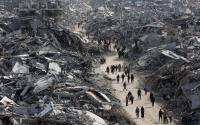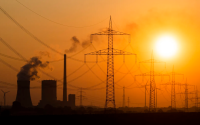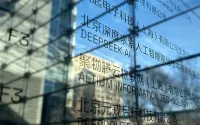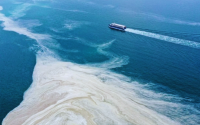22 October 2007Manila TimesRhaydz B. Barcia
Legazpi City: Mining industries are a major source of greenhouse gases which pollute the environment, as Gilbert Gonzales, regional director of the Environment Management Bureau (EMB) of the Department of Environment and Natural Resources in Bicol explained.
“Mining operations are major emitters of greenhouse gases to the environment because of the chemicals they’re using,” Gonzales said.
The EMB was tasked to monitor compliance of environmentally critical projects used with ECCs.
In Albay province there are two major mining companies such as Lafayette Philippines Inc. (LPI), located in the island town of Rapu-Rapu and Camalig GoodFound Cement Factory in the town of Camalig.
These two mining companies were both penalized by the DENR for violations of Environmental Compliance Certificate.
The DENR slapped the Good Found Cement Corp. with a fine of P350,000 for violations of seven conditions out of the 42 stated in the ECC for quarry operation and establishment of the cement manufacturing plant.
Ibalong Resources Development Corp., owned by Taiwanese Chuang Teng Ko, operates the cement plant company.
In 2003, the plant quarried limestone and clay with a total sales value of P1.91 million and produced 5.7 million bags of cement valued at P291.5 million.
The plant site was once agricultural land planted with coconuts and other farm crops but converted into industrial use.
Meanwhile, the Rapu-Rapu Polymetallic Project was also slapped with more than P10 million in penalties and suspended its operation for almost a year following two consecutive toxic spillages in October 2005.
According to fishermen from Barangay Binosawan, the waste tailings spillage incidents made their catch dwindle from 70 blue marlins a year to 20 in 2005 and 2006. The Rapu-Rapu Polymetallic Project is among the 24 priority mineral development projects under the Arroyo administration.
The project cost is pegged at P1.8 billion or $33,509,812 million. The project has a potential mine life of eight years with a planned annual production of 10,000 tons of copper in concentrates, 14,000 tons on zinc concentrates, 50,000 ounces of gold and 600,000 ounces of silver annually with mine leases covering 180 hectares in the eastern side of the island town of Rapu-Rapu.
Gov. Joey Salceda of Albay pioneered the prototype campaign on environment dubbed as “Albay in Action Against Climate Change” and part of his priority program is the prohibition of open pit mining and burning to dispose of garbage especially plastics to avert greenhouse gas emission.
However, LPI is practicing open pit mining in Rapu-Rapu and in Camalig, which contradicts the program of Salceda. The current project is an open pit mine focused on the Ungay-Malobago ore body wherein about six million tons of ore is to be mined.
A conference on climate change is set to be held in Albay to discuss with local government units concrete adaptation options to current climate risks and future climate change, discuss the potential impact of climate change to the country. The conference has been tasked to draft the Albay Declaration on climate change and present the key findings of the 2007 inter-governmental panel on climate change report.
The expected outputs of the three-day first ever conference on climate change will also be presented to the Bali Conference in December 2007.
Bicol has few industrial businesses, as indicated by the records from the Department of Trade and Industry regional office. There are eight large industries across the region and these are mostly located in Albay province.
Four are coco-based industries namely, Cosay Coco Products, Cosay Coco Oil Mills, Legazpi Oil Company Inc. and Globe Coco Manufacturing Inc. Two are abaca-based; Alindeco and Isarog Pulp and Paper, and two are mineral-based such as the Lafayette mining firm in Rapu-Rapu and Palanog Cement Plant Factory in Camalig.






